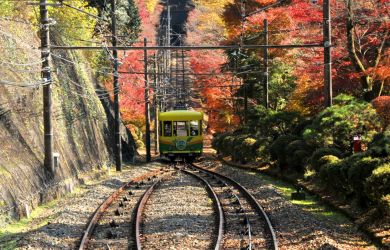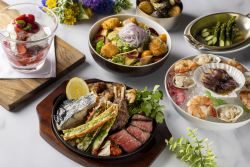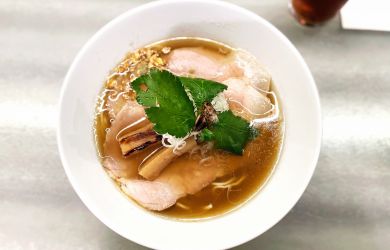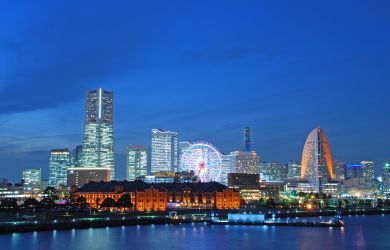
June 12, 2008
Hemp Restaurant Asa
Enjoy the pleasures of hemp—not that way—at this health-conscious Shimokita eatery
By Metropolis
Originally published on metropolis.co.jp on June 2008
It came as little surprise when my editor asked me to review Hemp Restaurant Asa—I recall only too well my mother’s shocking and entirely serious question at a family Sunday roast ten years ago: “Rich, are you on drugs?” But this theme eatery in Shimokitazawa offers a different take on the controversial cannabis plant. Asa serves up a healthy menu of food and drinks using hemp seeds or oil.
The restaurant opened on August 15, 1998, which has special significance: it was on that day in 1945 that Japan surrendered to the US, subsequently accepting the Cannabis Control Law in 1948. The law forbids the cultivation of hemp, which actually contains only trace amounts of the psychotropic chemical tetrahydrocannabinol (THC). But, luckily for Asa, Japanese campaigners were able to relax the law, and introduced a permit system allowing licensees to cultivate the plant legally.
On entering the restaurant, we were asked whether we wanted to sit in the smoking or non-smoking section. This baffled us entirely, so, in the absence of a bong, we settled ourselves in a non-smoking seat. On this particular Tuesday night, fellow diners included just a young Japanese couple and a pair of OLs, with sadly not a cloud of smoke to be seen. The café-style interior was strangely light and airy, and the hemp leaf mural that adorned the walls was in oddly good taste. Indeed, this was the only obvious sign that we were in a “hemp restaurant.” On closer inspection, we discovered that hemp was used as a subtle design motif throughout, with the seeds even inlaid under the glass-topped tables.
So, on to Mass Hemp Consumption (MHC). We started by ordering two of the three—yes, three—hemp beers on offer: Spirit of Hemp and Asa Monogatari “Hemp Story” (both ¥750). These were refreshing, with less hemp punch than the third and more common Cannabia (also ¥750).
After studying the English menu (note that prices may differ from the newly updated Japanese version), we learned that Asa was all about touting the health benefits of hemp: the oil contains a high percentage of essential fatty acids, which help prevent and/or relieve symptoms of heart disease, cancer, arthritis, depression… the list goes on.
Already on our second hemp beer (one of two ways we figured we’d achieve an altered state of consciousness), we decided on the avocado and bean salad (¥750). Made with moist hemp seeds, kidney beans and marinated in hemp oil, it had a fresh yet earthy flavor and certainly tasted healthy. Our second dish was hemp seed tameya (¥850), with hints of coriander and that now familiar nutty flavor. These Egyptian-style croquettes were served with a delicious tomato relish. Is deep-fried still healthy? The cold steamed chicken (¥900) dressed in sesame, hemp and miso sauce and indulgently garnished with saffron, got us back on our health bent. But the stand-out potato and hemp chips (¥750), with hemp salt and pepper and yet another hemp beer, got us straight back off it again.
Almost half the dishes on the menu are suitable for vegetarians, so add this restaurant to the growing list of diet-aware places to visit. If you seriously don’t have time for cannabis in the evening, bear in mind that Hemp Restaurant Asa is also open for lunch, when you can indulge in the “Hemp Lunch Set” (¥1200).
Ending our feast with a last hemp beer, we finally admitted that MHC has no psychotropic effect, but that vast beer consumption worked as always. Stumbling through the Shimokita maze, definitely not stoned but all hemped-out, we decided we needed a good old-fashioned smoke, and hit a little known shisha bar… but that’s another review.
Note: Although such hemp products contain negligible amounts of THC (tetrahydrocannabinol), recent articles in The Wall Street Journal, and my personal favorite, the Journal of Analytical Toxicology, have shown that some very sensitive employment screening tests can read positive. You have been warned…







